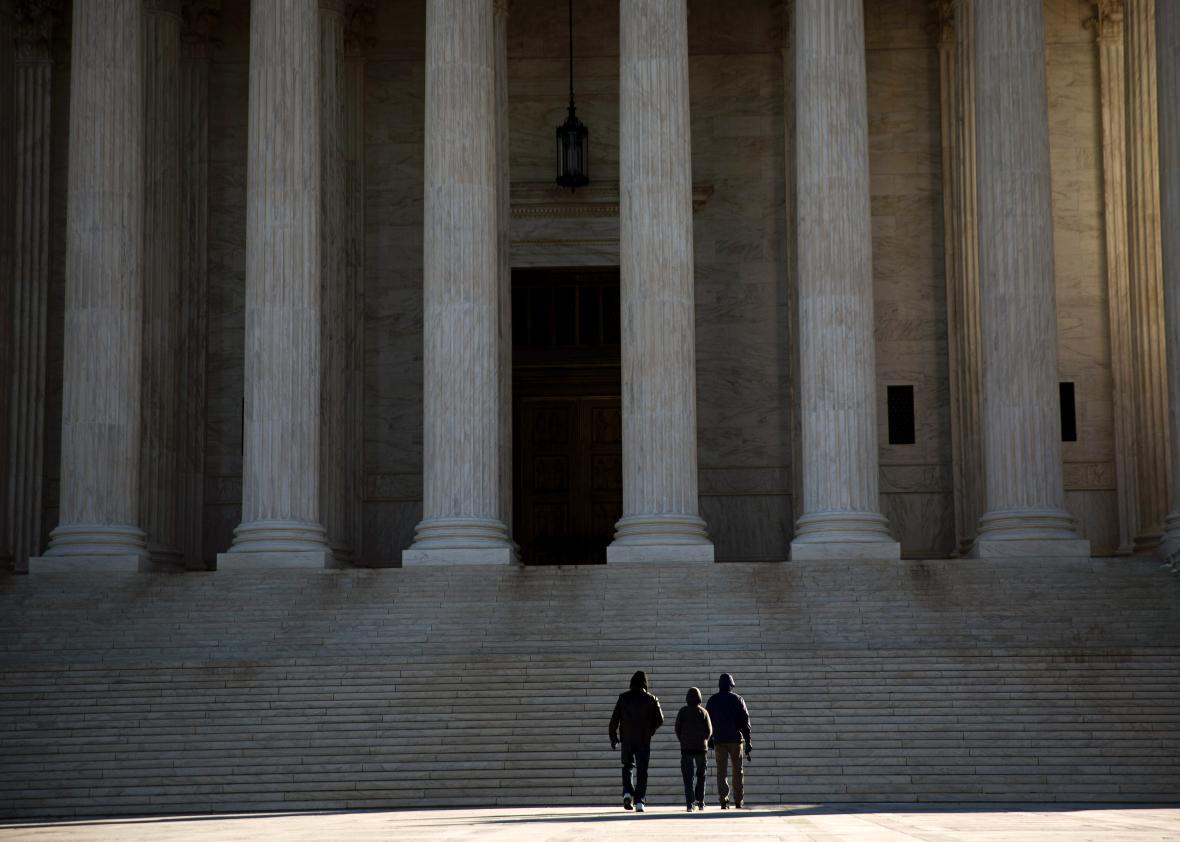On Friday, the Supreme Court agreed to hear Gloucester County School Board v. G.G., a blockbuster case whose outcome will affect whether transgender students can use the school bathroom that aligns with their gender identity. G.G. involves the validity of guidance by the Department of Education interpreting “sex discrimination” to encompass anti-trans discrimination. The case marks the first time the Supreme Court has directly addressed trans issues head-on. Its outcome will have ramifications in schools throughout the country.
Gavin Grimm, the plaintiff in G.G., is a transgender boy whose school board denied him access to the boys’ bathroom following an acrimonious hearing during which speakers called Grimm a “freak” and compared him to a dog. Grimm, represented by the American Civil Liberties Union, filed suit, citing DOE guidance that Title IX’s ban on “sex discrimination” includes gender identity discrimination. In order to comply with Title IX, the DOE reasoned, schools must allow trans students to use the bathroom that corresponds to their gender identity. The Justice Department agreed with this logic and support Grimm’s claims in court.
Last April, the U.S. Court of Appeals for the 4th Circuit issued a landmark decision holding that the DOE’s interpretation of Title IX was “reasonable” and that Grimm must be permitted to use the boys’ bathroom in school. But the Supreme Court put that decision on hold in August, with Justice Stephen Breyer joining the conservatives purely as a “courtesy” vote to “preserve the status quo.” It thus seems reasonable to conclude that the current court is split 4–4 on the question of whether the DOE can legally require federally funded schools to respect students’ gender identity. The next justice, then, will likely break the tie—and decide whether Grimm, now a senior, will be able to use the school bathroom in peace.
Update, Oct. 28. 2016: Shannon Minter, legal director at the National Center for Lesbian Rights, provided the following observation:
This is one of the most important days in the history of the transgender movement. The outcome of this case is likely to shape the future of that movement in ways that will resonate for a very long time.
The Fourth Circuit’s ruling is strongly supported by the Supreme Court’s own precedent, and it seems highly likely the court will affirm the Fourth Circuit’s determination that federal law protects transgender students from discrimination and requires them to be treated equally in all respects. The court now has an opportunity to resolve this issue for students across the country, and put a stop to the relentless efforts of anti-LGBT groups to isolate and stigmatize these students.
Given that the stakes for transgender young people are so high, it is appropriate that the court is taking a case now, to ensure that schools have clear guidance about how to treat these students and protect them from harm.
